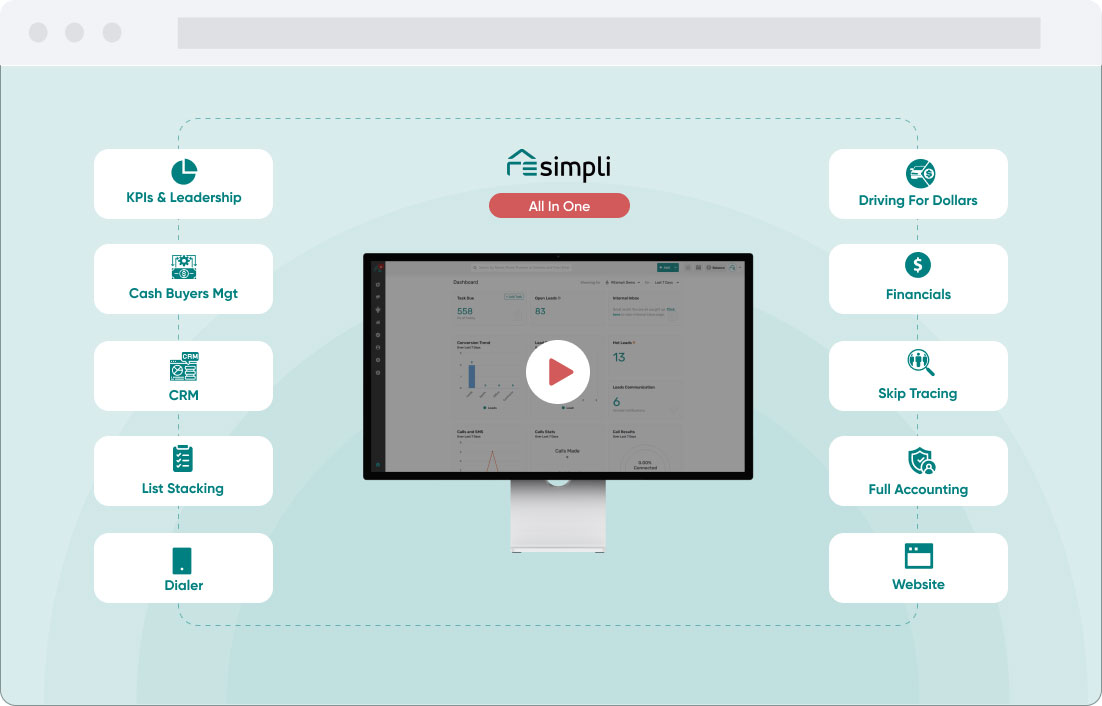Asset Protection for Real Estate Investors: Don’t let someone steal your wealth!
Imagine spending years building a portfolio of rental properties, stocks, and other assets — only to have someone take it all with one frivolous lawsuit.
So, how can you avoid a fake “slip-n-fall” or similar lawsuit from wiping you out?

Try these tips from asset protection attorneys in the real estate industry.
Holistic Asset Protection

First of all, asset protection takes more than just buying properties under an LLC or other entity.
You need a holistic approach. Yes, legal entities can help (when structured correctly). But it also helps to maintain anonymity and strong insurance, and to use ironclad legal contracts.
As you grow your real estate business as a flipper, wholesaler, or rental investor, invest a little time and money up front in asset protection. An ounce of prevention is worth preventing many pounds of cure later, when someone sues you.
Legal Entities
Real estate investors have several options for legal entities. There’s no one-size-fits-all option; the best entity for you depends on your investing strategy, state, and scale.
To get you started, here are a few of the most common legal entities used by real estate investors.
LLCs & Series LLCs
Limited liability companies, or LLCs, tend to work best for active businesses such as flipping houses or wholesaling real estate. They also work well in combination with a land trust — more on that shortly.
It costs money to open a new LLC, and most states charge an annual renewal fee as well. So, you don’t necessarily want to go buck wild with opening LLCs.
One way to get the benefit of separate entities without paying for each new one is to use a series LLC. You open one master LLC, then open new “cells” or “series” within it, each with its own asset isolation.
If someone sues one series, the most they could take if they win is the assets owned by that one series, but not the rest of the LLC’s series. At least that’s the theory, but speak with an attorney before trying this at home.
As a final thought, the rules vary by state for series LLCs, so what works in one state may not work in another.
Land Trusts

Few people understand land trusts, but they can be incredibly useful for real estate investors.
Under the Corporate Transparency Act, LLCs must report their beneficial owners. Land trusts are currently exempt, which helps property owners remain anonymous.
That makes land trusts ideal for landlords and other long-term real estate investors.
Each property should have its own individual land trust (such as “123 Main Street Land Trust”). That keeps the liability for each property separate, so one litigious tenant can’t steal all of your properties.
Trusts require several parties, specifically a trustee to manage or oversee the trust’s assets, and a beneficiary to, well, benefit from them. You should never name yourself as the trustee. Instead, use an attorney, CPA, or trustee service to maintain anonymity and asset protection.
As for the beneficiary, don’t name yourself personally either. Use an LLC as the beneficiary of the land trust to add an extra layer of protection. For example, real estate protection attorney Clint Coons points out that Wyoming allows LLC owners to remain anonymous.
Lastly, real estate wholesalers sometimes use land trusts as well. If you operate in a state that doesn’t allow contract assignments, you can use a land trust to transfer beneficial interest rather than assigning a contract. Land trusts offer a potential loophole to wholesale properties even where otherwise banned.
S-Corps & C-Corps
Most real estate investors do not need the full complexity and cost of an S-corporation or a C-corporation.
That said, it makes sense for some investors to create an LLC that is taxed as an S-Corp or C-Corp. This can help you avoid double FICA taxes, better known as self-employment taxes.
Talk to a tax or asset protection attorney about how to structure these, and about the pros and cons of having your LLC taxed as a C-corp or S-corp.
Professionalize Your Real Estate Business
Professional athletes don’t duct tape together their shoes. So why are you trying to duct tape together your real estate business?
If you want to earn profits like a professional real estate investor, use the tools your pro competitors are using. That starts with marketing and accounting tools like REsimpli.
Don’t take our word for it. Try it out for yourself with a 30-day free trial.
We look forward to hearing your feedback and successes after your first month running with the big dogs.
Borrowing Loans as an Entity
Many investors’ first question is, “Can I still borrow the same loans if I buy under a legal entity?”
The answer, of course, is “It depends.”
Hard money lenders and portfolio lenders don’t have any objections to lending to legal entities. The same goes for commercial lenders and most private lenders.
Some conforming loan programs don’t allow legal entities as borrowers. If you typically use bank loans to finance your properties, talk to your lender about conventional loan programs that allow LLCs and other entities.
Transferring Ownership Without Paying Off the Mortgage

One advantage of buying properties under an entity name is that you can transfer ownership of the entity to transfer the property, all without changing the owner on the title. The sale avoids alerting the lender and triggering the due-on-sale clause, so the new buyer can inherit your loan.
In some cases, investors want to transfer legal ownership while keeping control of the property. Investors sometimes buy under their personal name or an LLC and then transfer ownership to a land trust. The Garne-St. Germain Act allows transfer into a land trust without triggering the loan’s due-on-sale clause.
However, if the beneficiary changes — such as a new owner instead of the original borrower — the lender may still call the loan due. That’s still rare, but some lenders do call loans due if they discover the ownership or beneficiary changed, especially if the original loan had a very low interest rate and current rates are higher.
Legal Protection Through Better Contracts
In my interview with attorney and real estate investor Bishoy M. Habib, he noted that most legal problems and lawsuits against real estate investors stem from poor documentation. He particularly pointed the finger at weak or ambiguous legal contracts, including joint venture agreements, sales contracts, lease agreements.
Follow these rules of thumb to minimize the risk of lawsuits later on.
Never Rely on Handshake Agreements
While oral contracts are technically enforceable in court, they’re awfully hard to prove. They create a classic “he said/she said” situation where you can’t show the judge any proof of the other party’s promises.
No matter what kind of contract you’re entering, put it in writing, preferably with the help of an attorney.
Avoid AI-Generated Legal Contracts

ChatGPT can do wondrous things, and AIs get smarter every day.
But do you really want to entrust assets worth hundreds of thousands of dollars to it?
Hire an attorney to provide contracts, or at the very least, go through a state-specific legal contract service online.
JV Contracts
If you go in on a joint venture partnership with another investor, again, make sure your contract is crystal clear. Who’s responsible for what labor and what financial obligations? When? How are cash flow and profits split? What’s the exit strategy? What bonuses or penalties kick in based on performance? Leave nothing open to interpretation.

Work Contracts
When you work with contractors, get extremely granular on their payment terms, deadlines, quality of work and materials, and penalties for delays.
Contractors are notoriously difficult to work with and manage — put everything in writing.
Lease Contracts
Landlords need owner-protective lease agreements, written for your specific state. Specify every last detail from late rent penalties to how many nights a month a guest can stay before requiring your permission as an additional occupant.
State where the security deposit will be held, and whether the renter is entitled to interest. Add rules around pets, around subletting, around noise levels, and around putting felt pads on the furniture feet if you have hardwood floors.
Remember Murphy’s Law: if it can go wrong, sooner or later it will go wrong. Your legal contract should include both rules to prevent it and excruciating detail on what happens when it does.
Separate Your Businesses from Your Assets
Flipping and wholesaling properties are active businesses. They require their own business, separate from any assets that you want to hold long-term.
Rental properties are long-term investments and require their own separate legal entities, such as land trusts.
If a disgruntled buyer or contractor sues you over a flip, you don’t want them to be able to seize your rental properties, or worse, your personal assets like stock portfolios.
Keep everything separate, and never, ever commingle funds. If you use a business account for personal expenses or to cover another business’s expenses, you lose the protection of the legal entity.
A real estate CRM like REsimpli can help you buy properties and earn income from real estate investing — but it’s up to you to keep those assets safe. Use the protection of legal entities in your real estate business, always use protective legal contracts, and stay as anonymous as possible.
In the meantime, scale your real estate investments by taking REsimpli for a 30-day free test drive to supercharge your lead acquisition, deal flow, and profits.


